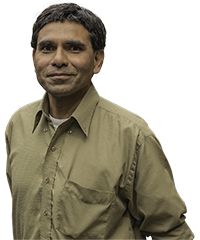Opinion
Mishra’s Mishmash: A celebration of democracy
Mrutyuanjai Mishra
This article is more than 9 years old.

Olof Palme’s assassination: the beginning of the end (photo: Bertil S-Son Åberg / SVT)
Almost half a century ago, the Swedish PM Olof Palme had the idea to give a political speech during his summer holiday in Visby on the Swedish island of Gotland. It gradually became a tradition to use the vacation for political dialogue and communication with the common man, who could walk up to a famous politician and ask simple or difficult questions. For the last three decades, all the political parties in Sweden have visited Visby to deliver speeches that have had a huge impact on election results.
Anything you can do …
What started out as an attempt to put top politicians into contact with the common man has become an annual event, which is heavily covered by the Swedish media. Thousands of arrangements, conferences and seminars are organised each year, and many non-governmental organisations now participate on an equal footing, with plenty of debates to follow as well.
Danish politicians, too, have been inspired by this annual festival of primarily political meetings, and this past week thousands of Danes went to Allinge on Bornholm, a beautiful island in the Baltic Sea, to participate in a tradition similar to the one started by the Swedes. This is becoming the Scandinavian way of practising politics. Unique in its simplicity, it gives an opportunity to the common man and woman to comment and ask questions in small tents and halls, where the atmosphere is both genial and kind and there is no attempt to win.
One PM and his dog
To those of us who come from other democracies, this proximity might look strange. In Denmark and Sweden, it still is possible to meet a politician biking on the street – or, as was demonstrated last week, at the outdoor screening of a football game. It couldn’t be more different from the US or India where the roads are closed to let a huge caravan of police wagons and bulletproof cars carrying prime ministers and presidents pass by with roaring sirens.
Close democracy, as the Danes love to call it, makes this a unique feature of Scandinavia, and if you’re here long enough, you’ll probalby meet a few former prime ministers and ministers taking the train, riding a bicycle or just out in public.
Some years ago when Poul Nyrup Rasmussen was the prime minister of Denmark, I met him while I was taking a walk. I’ll never forget how he had time to stop and say hello and told us to enjoy the weather. No bodyguards, either.
Closeness still intact
Then again, that was before 9/11. And the assassination of the aforementioned Olof Palme in 1986. Things have changed in Denmark too. Now you cannot walk into the Parliament as you could then. And chance meetings with the prime minister are probably less likely too. But still, when every single country is tightening its terrorism laws, Scandinavian countries still maintain a closeness between the common citizen and the political elite that represents them in Parliament.
Despite the fact that Danes and Swedes have fought each other for centuries, they have now started learning from each others’ experiences. These ‘people’s meetings’: ‘folkemøder’, as they are called in Danish, are the best political democratic exercises I have ever seen. I hope other countries can get inspired and their politicians could take a week off to communicate with their audience without wearing ties, relaxing with a beer or a cup of coffee in their hands.
About
Mrutyuanjai Mishra
As a regular contributor to the Times of India, the country’s largest newspaper, Mishra is often sought-after by Danish media and academia to provide expertise on Asian-related matters, human rights issues and democratisation. He has spent half his life in India and the other half in Denmark and Sweden.











































